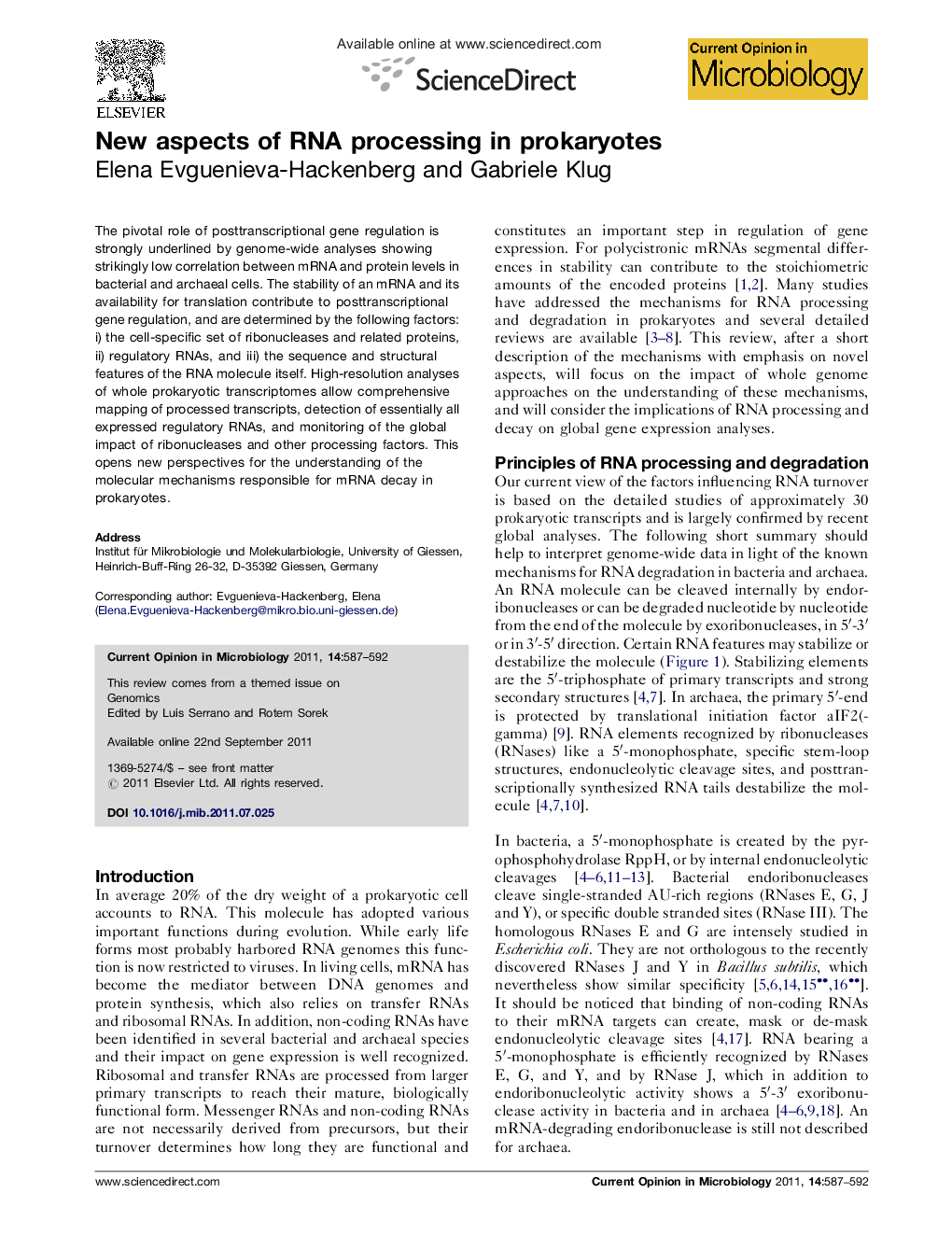| Article ID | Journal | Published Year | Pages | File Type |
|---|---|---|---|---|
| 3399215 | Current Opinion in Microbiology | 2011 | 6 Pages |
The pivotal role of posttranscriptional gene regulation is strongly underlined by genome-wide analyses showing strikingly low correlation between mRNA and protein levels in bacterial and archaeal cells. The stability of an mRNA and its availability for translation contribute to posttranscriptional gene regulation, and are determined by the following factors: i) the cell-specific set of ribonucleases and related proteins, ii) regulatory RNAs, and iii) the sequence and structural features of the RNA molecule itself. High-resolution analyses of whole prokaryotic transcriptomes allow comprehensive mapping of processed transcripts, detection of essentially all expressed regulatory RNAs, and monitoring of the global impact of ribonucleases and other processing factors. This opens new perspectives for the understanding of the molecular mechanisms responsible for mRNA decay in prokaryotes.
► Genome-wide studies underline the role of posttranscriptional regulation. ► We briefly describe the principles of mRNA degradation in prokaryotes. ► We summarize global data on mRNA half-lives and their implications. ► Primary and processed 5′-ends, and non-coding RNAs can be mapped by deep sequencing. ► High resolution transcriptomics helps to uncover novel processing mechanisms.
